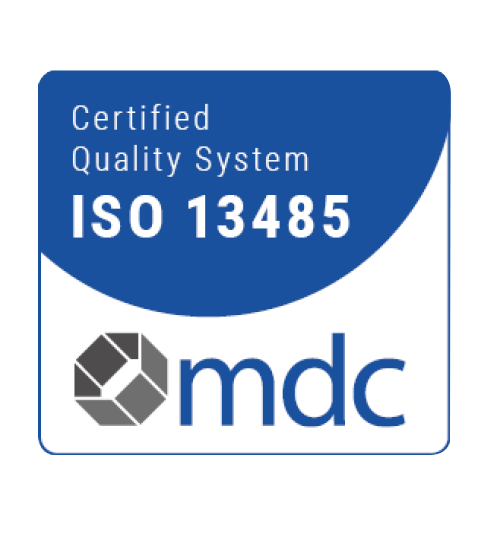
Finding the right dental insurance plan can significantly impact your oral health and financial well-being. Dental treatments and procedures can be expensive, making oral insurance an invaluable tool in managing the cost of necessary dental care. Various oral care plans are available today, and selecting the most suitable one can be confusing.
Let’s discuss the key factors when choosing a dental insurance plan. By understanding these factors, you will be better equipped to make an informed decision and find an oral insurance plan that meets your needs and budget.
Selecting the Best Dental Insurance
Your smile is invaluable; guarding it requires the right oral care insurance plan. With numerous plans on the market. Each offers unique benefits and coverage options, but finding the perfect fit can be challenging. Here are the key factors to consider when evaluating dental insurance options:
Coverage Options
Assess the types of dental services covered by the insurance plan, including preventive care, basic procedures (such as fillings and extractions), major procedures (such as crowns and root canals), and orthodontic treatment. Look for a comprehensive plan for the services you anticipate needing.
In-Network Providers
Determine whether the insurance plan has a network of preferred providers, including dentists, specialists, and dental facilities. In-network providers typically offer discounted rates for covered services, lowering policyholders’ out-of-pocket costs. Consider whether you’re willing to switch providers or if your current dentist is part of the plan’s network.
Out-Of-Network Coverage
Recognize any potential restrictions or limitations and the extent of coverage for dental services rendered out-of-network. While some insurance plans require policyholders to pay higher out-of-pocket costs for non-network care, others offer partial reimbursement for services rendered outside the network.
Annual Maximum and Deductibles
Review the plan’s annual maximum benefit, representing the maximum amount the insurance company will pay for covered dental services within a calendar year. Additionally, consider the deductible, which is the amount you must pay out-of-pocket before the insurance coverage kicks in. Choose a plan with affordable annual maximum and deductible amounts that align with your anticipated dental care needs.
Waiting Periods and Pre-Existing Conditions
Be aware of any waiting periods that may apply before certain dental services are covered under the insurance plan. Additionally, inquire about coverage for pre-existing dental conditions, as some plans may impose limitations or exclusions for conditions before the policy’s effective date.
Cost of Premiums
Evaluate the monthly premiums for the dental insurance plan and any additional fees or copayments associated with covered services. Consider your budget and financial priorities before choosing plans with varying premium amounts and out-of-pocket costs.
Flexibility and Portability
Think about how flexible the dental insurance plan is regarding coverage, provider networks, and policy terms. Additionally, assess whether the plan is portable, meaning you can maintain coverage if you change jobs or relocate to a different area.
Customer Service and Support
Research the insurance company’s reputation for customer service and claims processing efficiency. Select a dental insurance company with a reputation for providing prompt, courteous customer service and addressing policyholder questions and concerns.
By assessing these factors, you can confidently select a plan that provides coverage, network access, and affordability to maintain optimal oral health and peace of mind. Take your time to evaluate these factors.
Exploring the Valuable Benefits of Dental Insurance
Awareness of the benefits of choosing the right dental insurance can help individuals and families better appreciate the value of investing in dental insurance coverage. Here are some of the key benefits:
Affordable Preventive Care
One of the primary benefits of dental insurance is access to affordable preventive care services. Oral care insurance plans often cover routine examinations, cleanings, and X-rays at little or no cost to the policyholder. These preventive steps are crucial for preserving oral health, identifying problems early, and averting more expensive dental issues in the future.
Financial Protection
Dental insurance provides financial protection against unexpected dental expenses. Insurance coverage can significantly reduce out-of-pocket costs and alleviate financial strain if you have a dental emergency or need restorative treatments such as fillings, crowns, or root canals.
Coverage for Basic and Major Procedures
Many dental procedures are usually covered by dental insurance, ranging from major operations like crowns, bridges, and root canals to more basic services like fillings and extractions. It guarantees that people can obtain essential dental care without paying excessive costs if they have coverage for these procedures.
Orthodontic Coverage
Many dental insurance plans offer coverage for orthodontic treatment, including braces or clear aligners. For those who need orthodontic treatment to get a straighter, healthier smile, insurance coverage can help lower the cost of orthodontic care.
Preventive Health Benefits
Sustaining general health and well-being is associated with maintaining good oral health. Dental insurance encourages regular dental checkups and preventive care, as these practices can help avoid dental issues and lower the chance of developing systemic health disorders like diabetes, heart disease, and respiratory infections.
Provider Network Access
Most dental insurance plans have a network of participating dentists and specialists who have agreed to accept negotiated fees for covered services. Access to a network of providers can make it easier to find a dentist, schedule appointments, and receive timely care without incurring higher out-of-network costs.
Improved Oral Health Outcomes
People with dental insurance are more likely to seek early detection and treatment for dental problems, ultimately improving oral health. Regular dental checkups and cleanings can help identify and address oral health problems early, reducing the need for more extensive and costly treatments in the future.
Dental insurance gives people and families peace of mind by covering their oral health needs, from inexpensive preventive care to major dental procedures and orthodontic treatment. By investing in dental insurance coverage, individuals can enjoy the benefits of optimal oral health and a brighter, healthier smile for years to come.
Evaluating Dental Insurance
Choosing the right dental insurance plan can be daunting, but it’s an important decision that can impact your oral health and financial well-being. With many options available, from traditional insurance plans to discount plans and dental savings accounts, it’s essential to carefully evaluate your choices to select the plan that best meets your needs. Here are some key factors to consider when evaluating dental insurance:
Assess Coverage Options
Start by assessing the coverage options offered by each dental insurance plan. Consider the services covered, such as routine cleanings, exams, fillings, and major procedures like root canals or crowns. Look for plans that provide comprehensive coverage for both preventive care and treatment for common dental issues.
Assess Cost and Affordability
Dental insurance’s primary benefit is its affordability. With several plans available with different offers and coverage, you may need help to choose one that aligns with your needs. Thus, you have to evaluate the cost of each plan’s premiums, deductibles, copayments, and coinsurance. Determine whether the monthly premium fits your budget and whether you can afford any out-of-pocket expenses, such as deductibles or copays. Remember that while plans with lower premiums may seem more affordable upfront, they may have higher out-of-pocket costs when you need dental care.
Compare Coverage Limits and Waiting Periods
In addition to coverage, each plan is built differently depending on the insurance company policy. Review any coverage limits, waiting periods, or exclusions that may apply to the dental insurance plan. Read the plan documents carefully to understand any exclusions or limitations on coverage, such as pre-existing conditions, waiting periods, or restrictions on certain procedures. Be aware of any restrictions affecting your ability to receive the care you need. Some plans have annual maximums on coverage amounts, while others may impose waiting periods for certain services or exclude coverage for pre-existing conditions.
Additional Benefits and Features
Look for additional benefits and features the dental insurance plan offers, such as coverage for orthodontic treatment, teeth whitening, or cosmetic procedures. Some plans may also include perks like teledentistry services, discounts on prescription medications, or access to wellness programs. Assess whether these extras align with your dental care needs and preferences.
Customer Reviews and Satisfaction
Determine the plan’s overall value based on coverage, costs, network accessibility, and customer service. Research customer reviews and satisfaction ratings for the dental insurance plans you’re considering. Look for feedback from current or former policyholders regarding the plan’s coverage, customer service, claims process, and overall satisfaction. Pay attention to any recurring complaints or issues raised by reviewers, as they may indicate potential drawbacks or limitations of the plan. Consider consulting with friends, relatives, or medical professionals who have previously dealt with the insurance company or particular plans for recommendations.
By carefully evaluating these factors, you can make an informed decision when choosing dental insurance that meets your needs and helps you maintain optimal oral health. Individuals can make informed decisions about their oral health care coverage by understanding the components of dental insurance policies, including coverage options, plan types, premiums, and cost-sharing arrangements. Take the time to compare policies, evaluate coverage options, and select an oral care insurance policy that meets your needs and budget.
Making Informed Decisions for Optimal Oral Health Coverage
The options for coverage, provider networks, prices, and policy terms must all be carefully considered when choosing the best dental insurance plan. By thoroughly evaluating these factors and understanding the nuances of different insurance plans, individuals can make informed decisions that align with their oral health needs and financial goals.
For further guidance on navigating dental insurance options and maintaining optimal oral health, visit the FirstClass Aligners blog for expert insights and tips tailored to your dental care journey.






